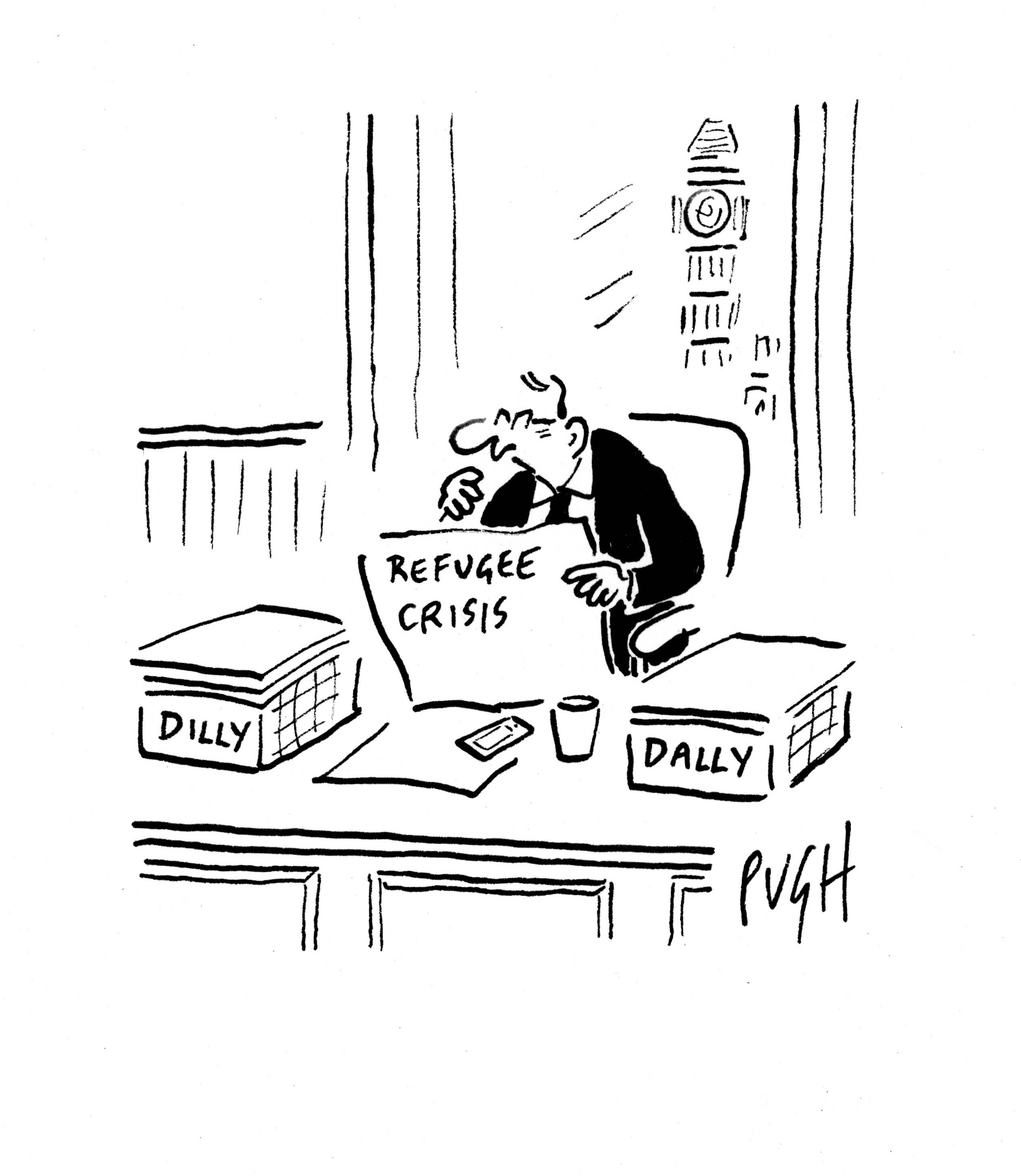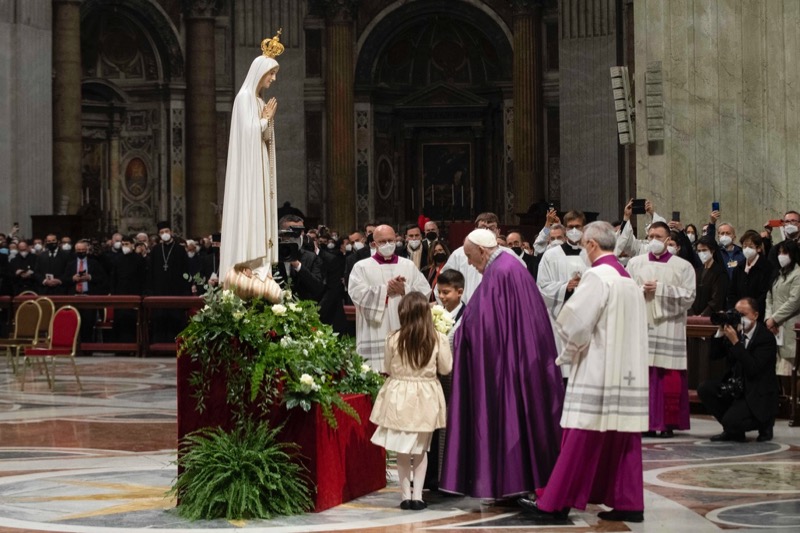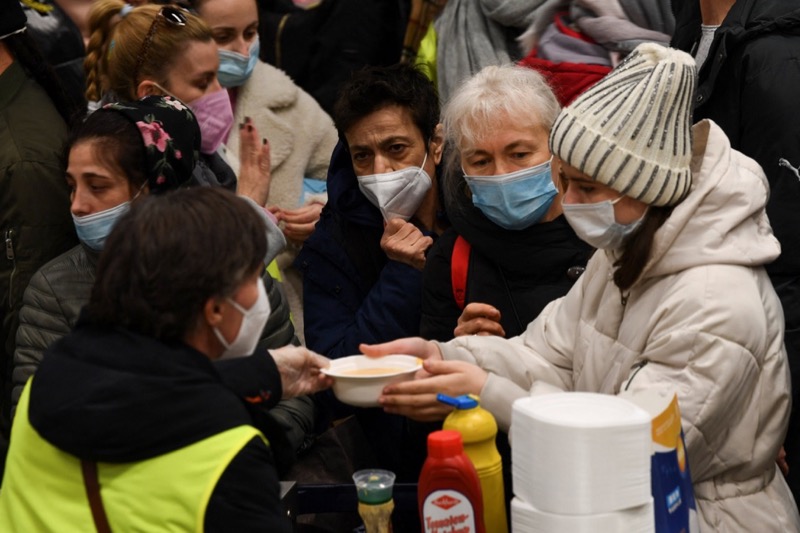The Government’s response to Ukrainian refugees has been criticised as “completely inadequate” by leading British theologian, Dr Anna Rowlands, who said it was still broadly configured towards a “policy of deterrence” rather than “a fulsome enacting of the principles of international law”.
Dr Rowlands, who is St Hilda Associate Professor of Catholic Social Thought and Practice in the Department of Theology and Religion at Durham University, was speaking to The Tablet after she delivered the Jesuit Centre for Faith and Justice annual lecture in Dublin.
The title of the lecture was “Illumination in Dark Times: The Surprising Contemporary Relevance of Catholic social teaching”.
She said the treatment of Ukrainians fleeing conflict was “still within the kind of mindset of the ‘hostile environment’ policy” aimed at deterring immigrants from seeking out the UK as a desirable place to go to.
As of 22 March, the United Nations estimated that over 3.5 million people have fled Ukraine and millions more are internally displaced. By 21 March, approximately 9,500 visas had been issued to Ukrainians with family ties to the UK, under the Ukraine Family Scheme, out of the 200,000 Boris Johnson claimed could be eligible. Meanwhile more than 150,000 people in the UK have signed up to take in a refugee under the Homes for Ukraine scheme.

Rowlands, who is a Refugee Hosts’ co-investigator and has worked with the Jesuit Refugee Service in the UK, said she was also worried that there was a transfer on to civil society of some of the responsibilities of the State.
“I think it is hugely generous and warm-hearted of the British population, as in Ireland and elsewhere, to open their homes [to Ukrainians]. But an opening homes policy alone is not a just upholding of international law principles around refugee hosting and provision.”
The theologian, who has just published a new work, Towards a Politics of Communion: Catholic social teaching for Dark Times, warned that the easing of entry restrictions and access to the “far from generous benefits” and job finding supports available to the general population, which “are above the level of those available to people seeking asylum in the UK” creates the “danger of a two-tier system of deserving and undeserving refugees, which has very strong racial lines around it. And that should concern us very deeply.”
Asked about the Church’s position on Ukraine and a just war theory, Dr Rowlands emphasised that Pope Francis, in his conversations with President Volodymyr Zelenskiy, over the last week or so, has been absolutely clear that Ukraine has a right to self-defence.
“But Pope Francis has said nothing further to indicate that a just war theory has a particular role to play, in terms of moral reasoning, in this moment.”
She said this was in line with Pope Francis’ writings in Fratelli Tutti in which “he comes close to but does not actually reject just war theory”.
“Pope Francis has said that a just war theory, whilst it has had some historical usefulness, at this moment in time does not help us to make good decisions about a resort to violence in the current world. His view is based on the fact that he thinks the just war theory has had a dubious moral performance in terms of tending to justify more conflict than is necessarily healthy in the last 100 years.
“He doesn't think that in a world where nuclear possibilities are so huge, and they loom so large in this current conflict – we know that Putin has refused to rule out the use of them – he does not think that just war theory helps us negotiate those challenges.
“So, he wants to remove it as a kind of comfort blanket because he thinks it is a false form of reassurance for us and does not actually help us make complex moral decisions in the world at this moment.”
She said that the Catholic Church has yet to put in place a more robust and full pacifism that is able to offer realistic advice to people in a situation like Ukraine at the moment.
This shift on how morally useful just war theory is in its current form requires the Church to do some very robust quick thinking in this space, she underlined.
“The reality is that a more pacifist stance requires long term peace-building strategies within communities for it to be a viable response, and the reality is that right now, that is difficult. It is almost as if this war has hit just at a moment when the Catholic tradition has been re-evaluating its approach to war and peace questions.”
She believes the Christian tradition is likely to orient itself increasingly towards peace-building but, she said, the Church needs to rapidly put in place moral teaching that offers clarity and guidance.
In her lecture, Dr Rowlands explored how the principles of Catholic Social Thinking in conjunction with the work of female philosophers, Hannah Arendt and Simone Weil, can speak to contemporary, pluralist societies, especially in the face of violent populism, the return of authoritarian leaders, and the escalating refugee crisis.
She told The Tablet that she believes Catholic social teaching “does have something profound to say” at a time when many people imagine that “we have to choose between a fairly thin version of liberalism, and a kind of authoritarian and populist right”.
“Catholic social teaching is a challenge, a provocation that says there has to be alternative political visions beyond individualistic consumerism on the one hand and on the other, a kind of authoritarian populism.”
She said there was a push from Pope Francis to use Catholic social teaching to make us think again about a Europe, committed to values of solidarity, fraternity, and open cultures of encounter, welcome and participation with a just distribution of goods, an economy that meets the needs of all with decent, meaningful work that is fairly renumerated and with housing. The three Ls – land, lodging, labour.”
“For him, it is simple, an economy constructed along those lines helps break some of the grip of the populists.”
However, she said there was a need for a wider vision in Catholic social teaching because “populism isn't driven only by economic need. It is driven by a kind of cultural vacuum, and a set of quite distorted narratives about human loyalty and human belonging. We need alternative storylines and the one thing that Catholic social teaching really does is it gives us a different storyline for what it means to be human.”



 Loading ...
Loading ...